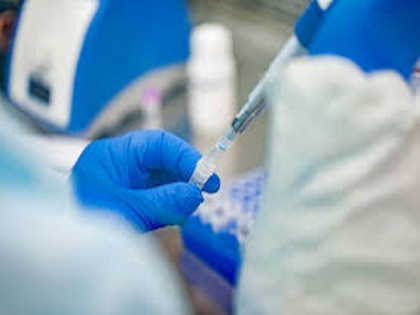Sero-survey for SARS-CoV-2 brings out burden of disease, say medical experts
By ANI | Published: August 20, 2020 08:05 PM2020-08-20T20:05:16+5:302020-08-20T22:47:05+5:30
Implemented across Delhi's 11 districts, a sample testing scaling to 15,000 by the Delhi government stated that 29.1 per cent population in the national capital has developed antibodies for SARS-CoV-2.

Sero-survey for SARS-CoV-2 brings out burden of disease, say medical experts
Implemented across Delhi's 11 districts, a sample testing scaling to 15,000 by the Delhi government stated that 29.1 per cent population in the national capital has developed antibodies for SARS-CoV-2.
Sero-surveillance with regard to COVID-19 means monitoring the presence or absence of SARS-CoV-2 virus-specific antibodies in the blood serum among the population.
Medical experts stated that the survey helps in understanding the burden of this disease better, given around 80 per cent of cases are asymptomatic and mild in nature.
While speaking on the importance of sero-surveillance Dr Neeraj Nishchal, Associate professor, department of medicine, AIIMS (New Delhi) said, "Sero-surveillance is measuring antibodies against any particular disease. COVID-19 is a new disease so the idea of actually how many have got infected because of this virus needs to be seen. The idea is to check the exact burden. This will further decide the strategy of containing/ mitigating the disease."
"The idea of sero-surveillance is to just check the antibody, so it will depend on the type of kit being used and whether it has been validated or not. The proven methods of avoiding this infection such as using face masks, social distancing, cough etiquettes becomes very important and that should be continued religiously," said Dr Nischal.
The government of the National Capital Territory of Delhi had commissioned a follow-up sero-survey for evaluation of the prevalence and trends of the SARS-CoV-2 infection in the general population of Delhi. The survey was planned by the Government of NCT Delhi with technical support of Maulana Azad Medical College (MAMC), New Delhi.
Dr Sheeba Marwah, Assistant Professor & COVID-19 Nodal Officer, Department of Obstetrics & Gynaecology, VMMC & Safdarjung Hospital said, "One of the loopholes of this test is that IgG antibodies develop after 14 days of viral infection only and also stay in our body for six to eight weeks maximum as per many recent studies and reviews from the west. This test determines a past infection in the last three months' time."
However, Dr Marwah also states, "There is a lack of concrete evidence on whether having antibodies means you're protected against reinfection with COVID-19. The level of immunity and how long immunity lasts are not yet known."
The sample collected in Delhi in the first week of August where age stratification was recommended from 5-17 years - 25 per cent; 18-49 - 50 per cent; and 50 years or more is 25 per cent.
More individual who was part of the previous round of the serosurvey was not included in the current survey.
Significantly, the results of such surveys (sero-survey) are dependent on the performance of the testing methods, i.e., the type and sensitivity/specificity of the kits used.
The other two rounds of the surveillance are scheduled in the first weeks of September and October, 2020.
( With inputs from ANI )
Disclaimer: This post has been auto-published from an agency feed without any modifications to the text and has not been reviewed by an editor
Open in app